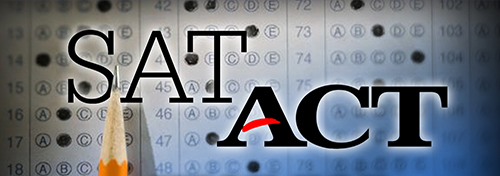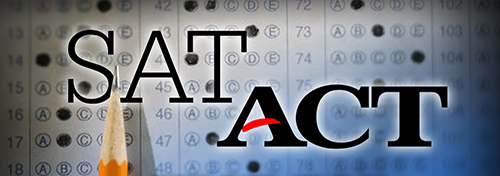
In the Institute's latest Policy Express, Restoring American Education, education researcher Joy Pullman argues that "the American mind is unwell." Despite almost unlimited public spending, our present K-12 education system is failing to prepare American kids to succeed in college, career or life and is in need of a complete overhaul.
Recently released 2015 SAT and ACT scores reinforce Pullman's argument. BloombergBusiness created these four charts to highlight the extent of education woes:
Students in the high school class of 2015 turned in the lowest critical reading score … in more than 40 years: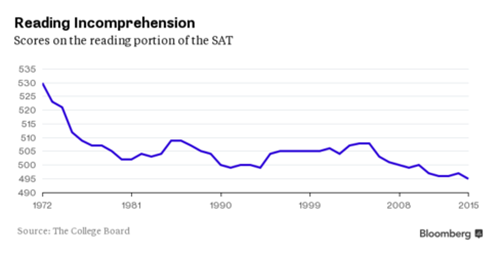
The mean score on the math portion of the SAT, 511, is the lowest since 1999: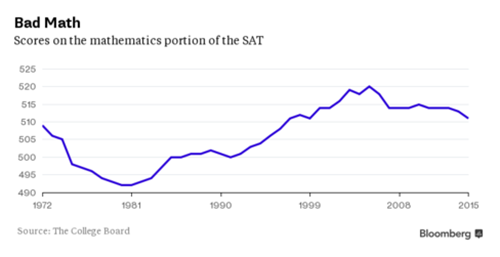
The test administrator reported the lowest score for the SAT's writing section since it began in 2005: 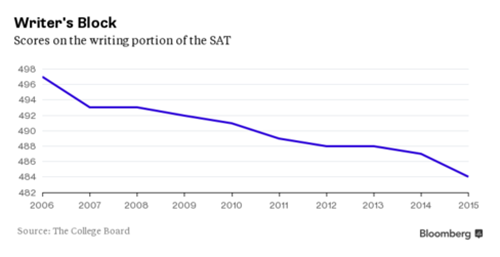
The ACT delivered gloomy news about the preparedness of the next generation of college students:
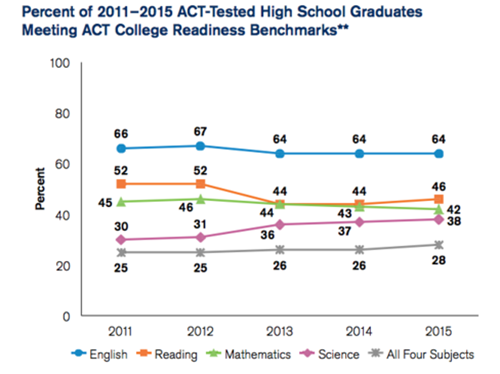
In a Washington Post story, educators offered the same response to declining student scores as in past decades:
It is difficult to pinpoint a reason for the decline in SAT scores, but educators cite a host of enduring challenges in the quest to lift high school achievement. Among them are poverty, language barriers, low levels of parent education and social ills that plague many urban neighborhoods.
Educators' continued deflection of responsibility should trouble Americans even more than students' SAT/ACT scores. What is the purpose of our very costly K-12 education system if not to educate children of poor and illiterate families in the basic reading, writing and math skills that society expects?
Educators have admitted for decades that the K-12 system, as it is currently organized, simply cannot meet the challenge Americans have given it. At what point will we take them at their word, accept that the K-12 system is designed to fail, and move to a different education system?
While the world is moving away from the Industrial Age "factory" model to an Information Age "customization" model, writes Joy Pullman in Restoring American Education, American education is doubling down on the one-size-fits-all factory model through the latest federal initiative, the Common Core. She argues that a system of schools based on individual choice (rather than a single school system based on central planners' dictates) is the modern, customized model America desperately needs today.
Doing more of the same—more spending and more federal standardization in this case—while expecting a different result is the definition of insanity. It's time to stop the factory public school insanity for the sake of the kids as well as the country.

